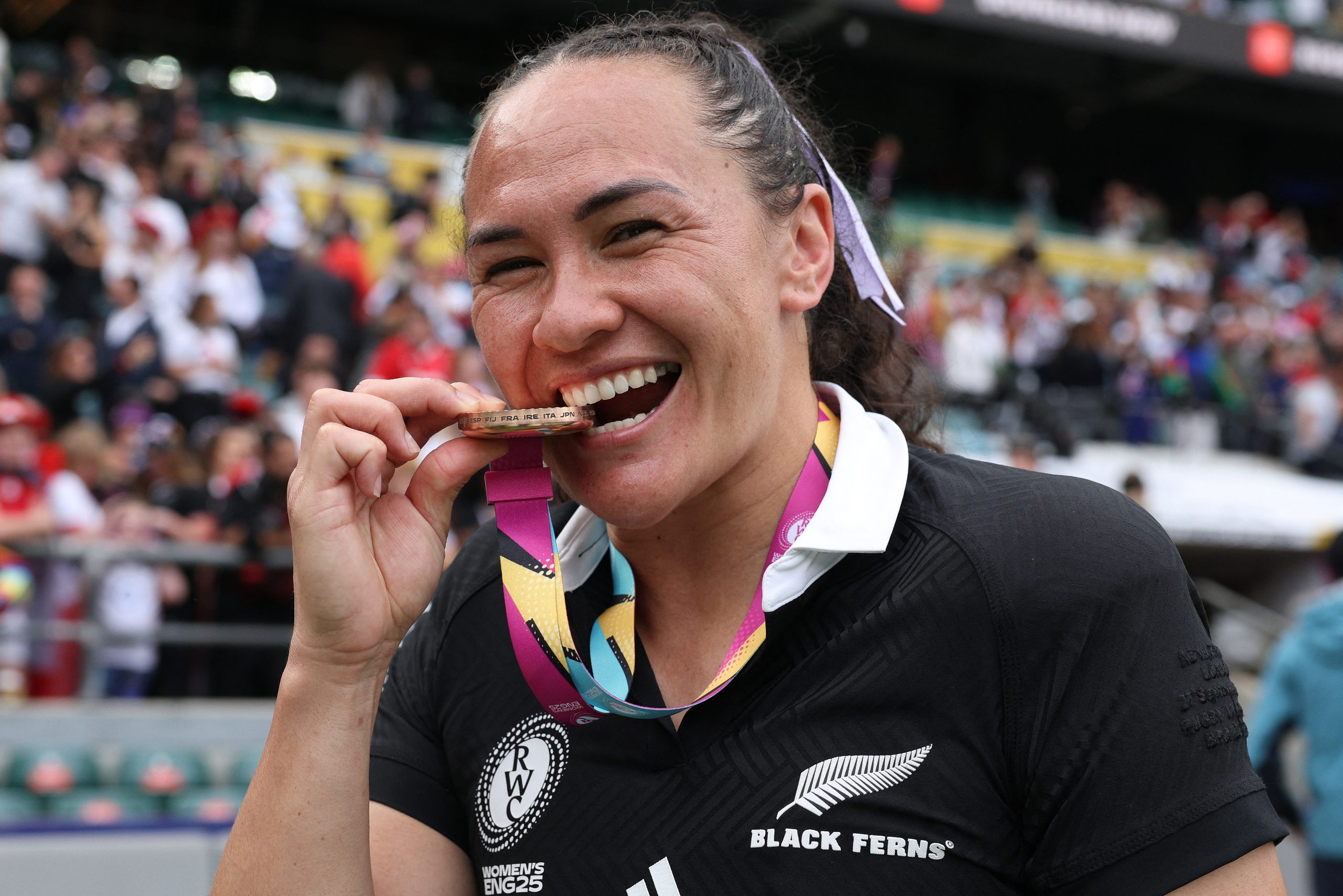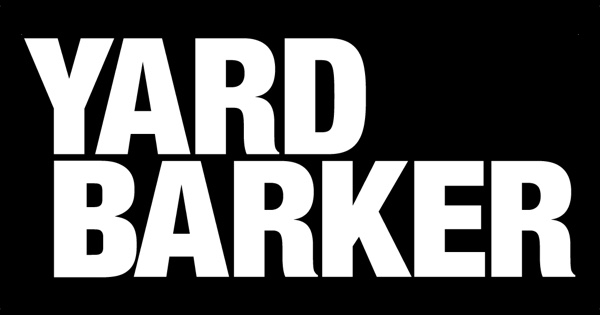Copyright newsroom

At a packed, postcard-looking Twickenham, England stymied Canada 33-13 in the final to claim the Rugby World Cup title and reinforce their status as one of the most dominant teams in international sport. A world record 33 consecutive wins, 63 victories in the past 64 internationals, outscoring opponents 3044 to 637 says all you need to know about a powerhouse that retains its uncanny knack for grinding teams into submission with scrum and lineout power but have evolved to encompass some of the daring, cunning, expanse of the Black Ferns who untangled their web of foward suffocation in 2022. Winger Jess Breach has won all 53 tests she has played and scored 53 tries. Staggering! Dashing, personable fullback Ellie Kildunne, with 47 tries and 56 wins in 57 Tests, might soon join the millionaires’ club with her likeability. But apart from early flourishies by Canadian winger Asia Hogan-Rochester and Kildunne, this was steely, ruthless, orthodox England. Canada’s scrum was dismantled, their lineout wobbled, and Alex Matthews, a 2014 Rugby World Cup winner, scored two tries. There was a reprieve when brutish prop Hannah Botterman was sinbinned in the 53rd minute, and 26-8 became 26-13. Then, there were periods of sustained tackling for the Red Roses, but when Canada’s scrum buckled again, it was over. Canada never stopped trying, and Sophie De Goode was a worthy recipient of the World Rugby Player of the Year. In March, CBC’s As it Happens reported that Rugby Canada reported revenue of $15.57 million in 2023 with expenses of $15.12 million. By comparison, England’s Rugby Football Union recorded revenue of $325.3 million in its 2023-24 annual report. The fact that Canada could even compete against those numbers is extraordinary, but as coach Kevin Rouet said of his team, which included two firefighters, an engineer, a school coach and 21 from his Rugby World Cup 2022 squad: “I’m French, so when I moved to Canada, I could see a big difference in terms of the willingness to work very hard and not complain, which I think represents Canadian rugby,” he said. The biggest women’s Rugby World Cup ever sold 150,000 more tickets than World Rugby anticipated. There can be no complaints that, despite the shortest of favourites prevailing, the tournament has left women’s rugby in a better place. But can anyone stay with England? Black Ferns third The Black Ferns avoided consecutive losses at a Rugby World Cup, securing a vibrant 42-26 victory over France in the bronze medal playoff. The match turned dramatically just before halftime, with three tries scored in seven minutes that transformed a 7-7 deadlock into a 26-7 lead for the Black Ferns. Although France made a comeback with a brief scoring spree in the second spell, the Black Ferns were deserving victors. Fullback Renee Holmes rebounded from a turbulent outing against Canada to be named the Mastercard Player of the Match. By scoring 17 points, she surpassed Vanessa Coutts, becoming the third-highest scorer in Black Fern history with a total of 220 points. Holmes scored the Black Ferns’ third try with a scything run after a sumptuous build-up had seen the ball couriered between six pairs of hands. Additionally, she nailed two 40m penalties, proving her selection was well-founded despite having played only one test match in 2025 before the World Cup. Braxton Sorensen-McGee scored two tries, increasing her tournament-leading tally to 11. Laura Bayfield excelled in defence, topping the tackle count with 23, and contributed to a lineout that went off without a hitch while also scoring her first test try with a 25-metre gallop. Loose forwards Jorja Miller with 21 tackles and eight carries, and Kaipo Olsen-Baker with 15 carries and 13 tackles, were damaging. Captain Ruahei Demant, who also scored a try, expressed pride in both her team and the French players: “First of all, I’m really proud of how not just we, but the French girls as well, were able to pick ourselves up, dust ourselves off, and play with real heart and passion today. “There’s a lot to reflect on concerning this tournament, and I’m sure as we return home, there will be even more thoughts about the growth in our game and the resources… There have been many positives as well.” Thanks Portia In the 57th minute, Black Ferns winger Portia Woodman-Wickliffe was moved to tears as she left the field to a standing ovation. As the leading try-scorer in both Rugby World Cup and Black Ferns history, she concludes her illustrious career at 34 years old, having scored 50 tries in 34 Tests, of which she won 28, including World Cup finals in 2017 and 2022. Reflecting on her farewell reception, Woodman-Wickliffe shared, “I didn’t realise that the applause was for me until one of the girls said, ‘P, that’s you.’” She added, “It makes me proud that this jersey means so much to people, and I can come to a different country and have the legacy of this tournament appreciated.” Woodman-Wickliffe humorously noted, “I’m not ruling out wearing the Black jersey again. I did that with my first retirement, and it was kind of embarrassing.” Black Ferns’ post-mortem When examining the reasons behind the Black Ferns’ failure to defend their Rugby World Cup title, several factors are worth raising. Captain Ruahei Demant highlighting a lack of discipline as an area of concern, and conceding 53 penalties, more than the three other semifinalists, justifies that sentiment. Black Ferns Director of Rugby Alan Bunting was willing to accept accountability for not winning but wouldn’t be drawn on specific areas of revision until he had more time for reflection. One significant issue was a relative lack of depth in the front row and impact from the bench, especially when compared with finalists Canada and England. While Georgia Ponsonby has established herself as a world-class hooker, the Black Ferns’ props did not exhibit the same mobility, efficiency, and confidence as they did in 2022. The Canadian front row, featuring McKinley Hunt, Emily Tuttosi, and DaLeaka Menin, plays in the English Premiership and collectively has 145 test caps of experience. The Red Roses had even more experience, with Hannah Botterman, Maud Muir, and Amy Cokayne combining for 199 test appearances. Hooker Cokayne has scored a remarkable 41 tries in her 89 tests. From 1995 to 2022, the Black Ferns were fortunate to have three exceptional halfbacks with nearly continuous selection: Monique Hirovanaa, Emma Jensen, and Kendra Cocksedge (MNZM). Since Cocksedge’s retirement after a record 68 tests in 2022, the Black Ferns have used six different halfbacks in 24 tests: Tyler King, Maia Joseph, Iritana Hohaia, Arihiana Marino-Tauhinu, Risi Pouri-Lane, and Ariana Bayler. Much like the All Blacks’ ongoing challenge to find a replacement for the formidable Jerome Kaino, the Black Ferns have struggled to identify a halfback with skills comparable to those of Cocksedge. Cocksedge excelled in goal-kicking, general kicking, distribution, and tactical leadership, effectively serving as a conductor for both the backs and the forwards. It is no coincidence that the Black Ferns’ three closest rivals also possess outstanding halfbacks. Natasha ‘Mo’ Hunt was recalled to the England squad at the age of 36; she has scored a dozen tries and has won 80 of her 88 tests. Canada’s Justine Pelletier has earned 30 wins in 43 tests and was named Player of the Match in Canada’s semi-final victory over the Black Ferns. France’s Pauline Bourdon Sansus is widely regarded as one of the top halfbacks in women’s rugby, boasting 71 tests, 44 wins, and 17 tries. The Black Ferns won the Rugby World Cup in 2022 with an expansive, risky, and innovative strategy. However, opponents are now better equipped to handle that approach, and the Black Ferns seem to lack a contingency plan when their all-out attack fails. Costly errors in their own territory have been punished, while both England and Canada have adapted their strategies to incorporate an expansive style alongside their set-piece and defensive prowess. The Black Ferns also face a lack of quality opposition nearby. While the expansion of Super Rugby Aupiki in Australia could gradually improve this situation, questions remain about its commercial viability. What are the prospects for a New Zealand team to compete in the English Premiership, based out of London, where many expats reside? Would England accept such a team? Could a private funder assist in supporting it alongside the Union? The Adam Awards Forward of the Tournament: Sophie De Goode (Canada) Back of the Tournament: Braxton Sorensen-McGee (Black Ferns) Game of the Tournament: USA v Australia, a spectacular 31-31 draw. Try of the Tournament: Kolora Lomani, Fiji v Canada Best Individual Game Performance: Ellie Kildunne v France Best City: Bristol P.S. The author would like to thank Jack Trevella and Jamie Amelia for retrieving the “boomerang” in North London after several detours, all of which were funded on a limited budget. Trevella is a rapidly rising rugby referee, and Amelia is the cousin of Black Fern Hannah King. These two exceptional and generous young Kiwis have provided invaluable assistance and a couple of right royal laughs.



